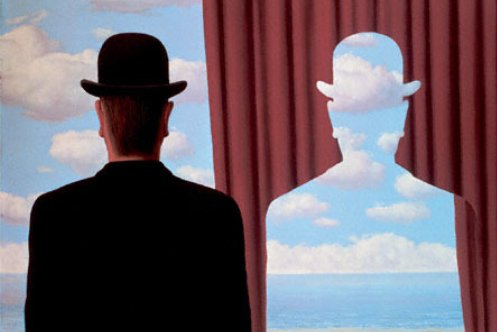When the Mind Has Mind of Its Own

I have not always made the best choices. Ok, Mom and Dad, and several friends who shall go nameless (you know who you are... stop nodding your heads so vehemently — it's unseemly). As William James, leader of the philosophical movement of Pragmatism once said, “When you have to make a choice and don't make it, that is in itself a choice.”
Give me a break, William James. I don’t care if you’re a genius and your brother was Henry James or not. You, James Gang of intellectualism, don’t understand the human condition. And you think too much. For all the rest of us mere mortals out here, how often do we know, if not soon learn, we’re doing something perhaps not in our own best interest? We know this logically, but cannot seem to stop ourselves from hurtling headlong into what, shall we say, may not be the most stellar of situations?
Don’t look smug, we all do it on some level. From those of us who of us who know we shouldn’t have that extra piece of chocolate cake to that ill-thought email you change your mind about delivering the minute you hit the ‘send’ button, to the career-ending act — sometimes the brain sends signals that overrides our own common sense. Although it is, at the end of the day, a "choice," yes, what is it that makes us feel sometimes almost powerless in our own decision making? Is it the angel on one shoulder and devil on the other syndrome? Is it we simply momentarily lose our senses?
Conjecture about the psychology if you want, but let’s not get that deep. Sometimes it’s a very base impulse although it isn’t instinct. It’s almost like a compulsion. So here we are, supposedly the "higher species." Yet so often heart overrules head; folly overrules reason; immediate gratification overrules thinking it through. This is not an excuse not to take responsibility for our actions. They are all ours along with all of the consequences and rewards — but still we sally forth into the oft-time ill advised.
The human mind is an amazing vessel. It allows us the capacity to solve complex problems, to think, to dream, to reach for higher and higher levels in everything we do; to believe we can achieve the unachievable, and often we do. It also allows for justification and denial. Quite the contradictory instrument.
So as you sit there along with me writing that email and debating about hitting the "send" button for about the three hundredth time; eating the entire contents of that bag of microwave popcorn, or something more life-defining or defeating; poised on the precipice of that act that cannot be taken back, consider that this all begs the question of "why?" or maybe even "how?" While you’re doing that, I’ll be procrastinating on listening to my common sense by having another slice of cake.
